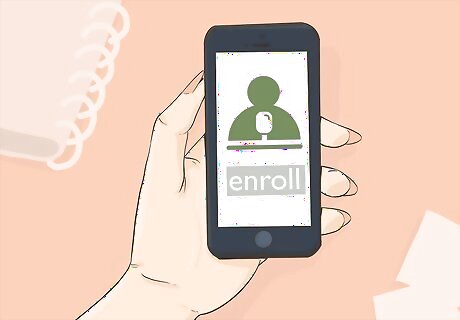
views
Examining Your Behavior

Notice if you pass your work to others. Start by looking at how you interact with others. Take a look at your habits and notice if you tend to try to enlist others to do your work. If so, it’s pretty likely that people find this irritating. Think about if you regularly ask co-workers to help out with your projects. If your answer is a yes, they might be irritated. Maybe you realize that you often try to get out of doing your fair share of work during group projects at school. Your classmates are probably tired of this behavior. Maybe your job at home is to take out the trash. If you constantly beg your sister to do it for you, she might be annoyed.

Pay attention to how much noise you make. You might have never considered whether or not you are loud. Now is the time to start paying attention. Throughout the day, take note of situations where you might be making too much noise for others. Spend a week keeping a log of situations where you are potentially being too loud. Some common examples of being irritatingly loud include: Being a noisy neighbor by playing your music too loudly. Talking during movies when you go to the theater or when you’re watching Netflix with a friend. Talking over people in social situations. Talking while others are talking in meetings or in class. Talking on a cell phone in public places.

Consider if you often have a strong smell. Smells can be very aggravating for people, both good and bad odors. This includes body odor, bad breath, and strong perfumes or colognes. Do you wear a lot of perfume, cologne, body spray, or body lotion? Do you eat a lot of strong-smelling foods? Do you shower or bathe often? Do you wear deodorant and/or other personal care products? Do you change your clothes daily? Do you wash your laundry before re-wearing it? Do your pets have an opportunity to soil your clothes before you wear them out?

Notice if you are frequently negative. If you regularly say negative things, it can really start to wear on the people around you. You might not even notice that you're doing it, so make an effort to really paying attention to how you speak. Complaining can sometimes help you deal with your feelings, but only in moderation. If you spend a lot of time complaining, people may not enjoy the conversation very much. You might be irritating if you constantly say, "Yes, but..." For example, if a co-worker makes a suggestion and you say, "Yes, but the client would hate that," that can make them feel their ideas aren't appreciated. It's also negative if you can't take a compliment. For instance, if someone compliments you, don't say, "Thanks for complimenting my cooking, but the chicken was really too dry and the sauce was bland!"

Pay attention to how you speak. How you speak and what you say can irritate the people around you. Talking too fast or about inappropriate topics can be off-putting to people. Additionally, frequently using slang, street talk, or profanity can bother people. Watch for the following irritating behaviors: Using the word "like" inappropriately too often. Using text speak. Ending statements so that they sound like a question. Using "you" instead of "we." Correcting others. Excessively using the phrase "you know." Constantly talking about yourself. Giving unsolicited advice. Speaking in run-on sentences.

Observe your manners. If you regularly forget your manners, there's a good chance that people find this annoying. You don't have to go out of your way to be over the top polite, but you should definitely make an effort to use basic courtesy. Start by always remembering to say please and thank you. Use your inside voice, even when you're upset. Don't raise your voice during disagreements. Greet people. For example, if you sit down next to a classmate at lunch, say, "Hi, Sue. How's your day going?" Avoid interrupting people when they are in the middle of a conversation. If you do interrupt, say "I'm sorry. I realize I interrupted. What were you saying?"

Take time to self-reflect each day. Self-reflection means taking a close look at yourself. Make it a habit to sit and think about your day. Consider your actions and the reactions of others. You’ll start to have a better understanding of yourself. Set aside 20 minutes a day to reflect. You could write in a journal or think while you take a walk. Think about what kinds of interactions you had that day. If they were positive, note what worked. If they weren't so great, try to think of ways you could make things go more smoothly the next time.

Ask someone you trust for feedback. One of the simplest ways to know if you are irritating is to simply ask. If you feel like your relationship with someone is strained, let them know that you’ve noticed. You might say to your best friend, “I’ve noticed we haven’t spent much time together lately. Have I done something to annoy you?” To a co-worker, say, “Do you think it bothers people when I eat tuna in the break room?” If someone gives you helpful feedback, thank them and work to make any necessary changes.
Picking Up on Cues

Watch facial expressions. You can observe the look on someone’s face to help figure out if they are irritated. If they appear relaxed and smiling, they are probably not annoyed. Some signs of irritation include: Frowning Rolling their eyes Raising their eyebrows Holding their mouth closed/tight

Look for signs of discomfort. In addition to watching facial expressions, you can pay attention to body language. Most people will subconsciously give signals that they are uncomfortable or irritated. Be on the lookout for: Lack of eye contact, or looking away Neck rubbing Face rubbing Looking at the door or a clock Feet pointed away Crossed arms Fidgeting

If you don't understand, ask. It's okay to ask for clarification if you can't figure out what someone is thinking or feeling. If you're uncertain, state what you notice, then ask what it means. Here are some examples: "I've noticed you're checking the time a lot. Do you need to go?" "You seem fidgety. Is something bothering you?" "You look uncomfortable. Should we change the subject?" "Have I upset you?"

Notice changes in your relationship. If you’re wondering if you are irritating someone in particular, step back and take an objective look at your relationship. Has it changed recently? The other person might be upset with you. Has your co-worker stopped chatting with you over your morning coffee? Consider asking them if everything is okay. If your best friend no longer invites you over for movie night, ask what is going on. Do people abruptly leave or end conversations when you come by? When you start talking, do people try to end the conversation as quickly as possible?

Give others the benefit of the doubt. It is possible the other person has something else happening in their life. Maybe your sister just hasn't had much time for you lately. It's natural to assume that it has something to do with you, but it might not! Remember that everyone has their ups and downs, and the person might just be stressed about work or school.
Making Positive Changes

Practice positive thinking. If you find that you regularly irritate others, you might want to work on changing parts of your behavior. Start by thinking more positively. If your thoughts are positive, you are more likely to behave in an optimistic and approachable way. Every evening, think of three good things that happened today. Cultivating an attitude of gratitude can help you feel better and share these good feelings with others.

Surround yourself with positive people. If someone is irritated with you, it’s not necessarily your fault. The two of you just might not click. That’s okay. Work on being around people who are positive. If someone doesn’t want to sit with you at lunch, try not to spend too much time worrying about it. Instead, join another group. If a friend regularly criticizes you, start spending time around your other friends. Try to be around people with positive attitudes.

Enlist the help of someone who can help when you overstep. If you have trusted friends or coworkers who can signal you when the irritating behavior begins, you can more actively break bad habits. Ask your closest friends or relatives to help you spot this behavior. You might say something like, "I've noticed that people at parties don't hang around with me, so I'm trying to fix my speech habits. Will you help me spot my bad habits?"

Take a class on etiquette, communicating effectively, or speech. An instructor can help you better identify the behaviors you need to work on and what you can do instead. You will be able to practice communicating well in a positive environment with other students who are trying to improve. Look online for classes, seminars, or workshops in your area. You may be able to take a class at your school. Check with local therapists to see if they offer group workshops.

Be polite towards others. A common reason that people get irritated is when they are treated rudely. Try to always use good manners so that you don’t upset someone. Don’t interrupt, always say please and thank you, and greet people in a friendly way. You can also be polite by respecting other people's’ personal space. Be attentive to others. Show that you are listening by maintaining eye contact (or looking at them) and asking questions when appropriate.

Take time to listen to other people's ideas. Maybe you've been asked to talk less during meetings. It's probably not because your ideas aren't valid, it's just that you might be monopolizing the conversation. Don't worry, you can correct the problem. Make an effort to listen more than you talk. This means that in a 10 minute conversation, you shouldn't be doing more than 5 minutes of the talking. Make sure that you only talk when you have something of value to add to the conversation. For example, if your friends are talking about how much they love yoga, you don't need to interrupt to say, "But really, spinning is so much better!" Don't feel a constant need to talk. For example, if the person next to on the bus is reading a book, you don't have to pepper them with questions like, "What's that about? Is it good? Why is that picture on the cover?" While it's okay to be friendly, it's also good to notice whether people are receptive. Sometimes, they need quiet time and would prefer to be left alone.

Validate people's feelings. Pay attention when they talk about how they feel, and take their emotions seriously. People deeply appreciate people who make them feel heard and understood. Making a habit of validating people's feelings can go a long way to helping them feel comfortable around you, and helping them enjoy spending time with you.

Talk less about yourself. It can be really irritating if someone is constantly talking about themselves. If you've realized that you are guilty of this, figure out some ways to correct the problem. For example, ask other people questions about themselves. If you're talking about how much you loved Breaking Bad take time to ask the other person what their favorite show is. If you notice you've been talking about yourself a lot, pause and ask a question about the other person, such as "So how has your day been?" When someone is telling a story, try not to always jump in and say, "I had the same thing happen to me!" It's okay to empathize, but it's also okay to let other people steer the conversation. Notice whether the other person is asking questions. A person who is genuinely interested might prompt you to keep talking about yourself, in which case, keep doing so until the subject naturally changes.

Try not to be hard on yourself. Maybe you irritated someone. That's okay, it happens to everyone. Don’t beat yourself up for it. Occasionally being annoying doesn't make you a bad person. Instead, just make an effort to smooth things over by apologizing to the person you annoyed, if appropriate, and moving forward.



















Comments
0 comment